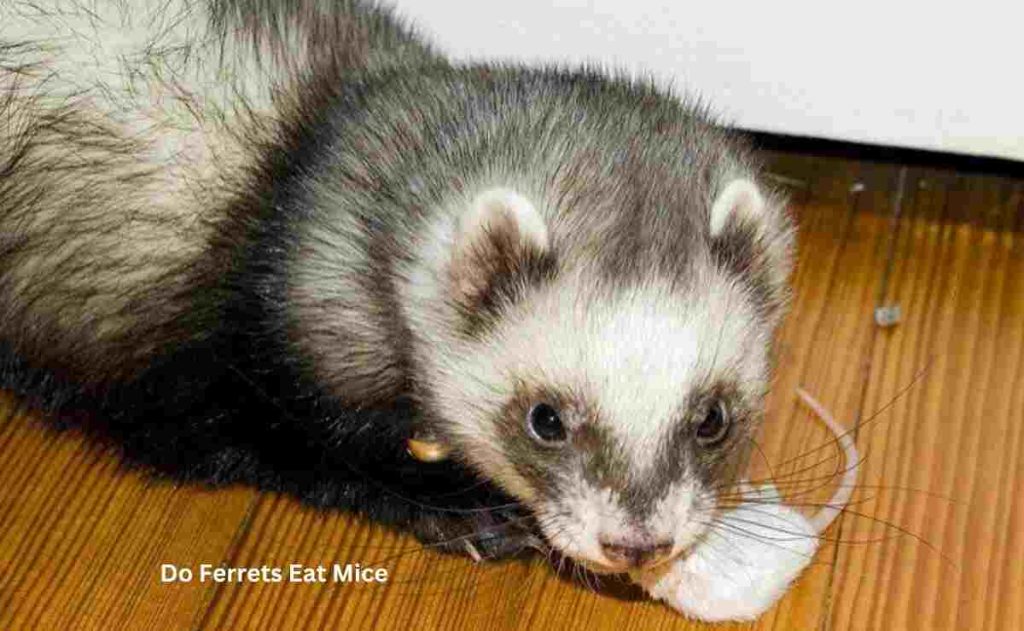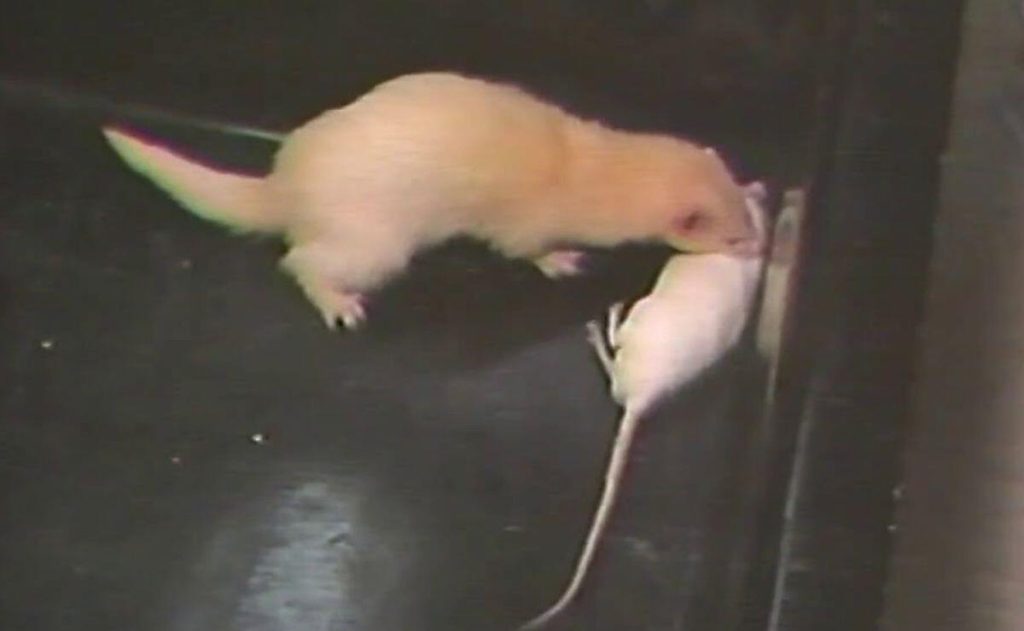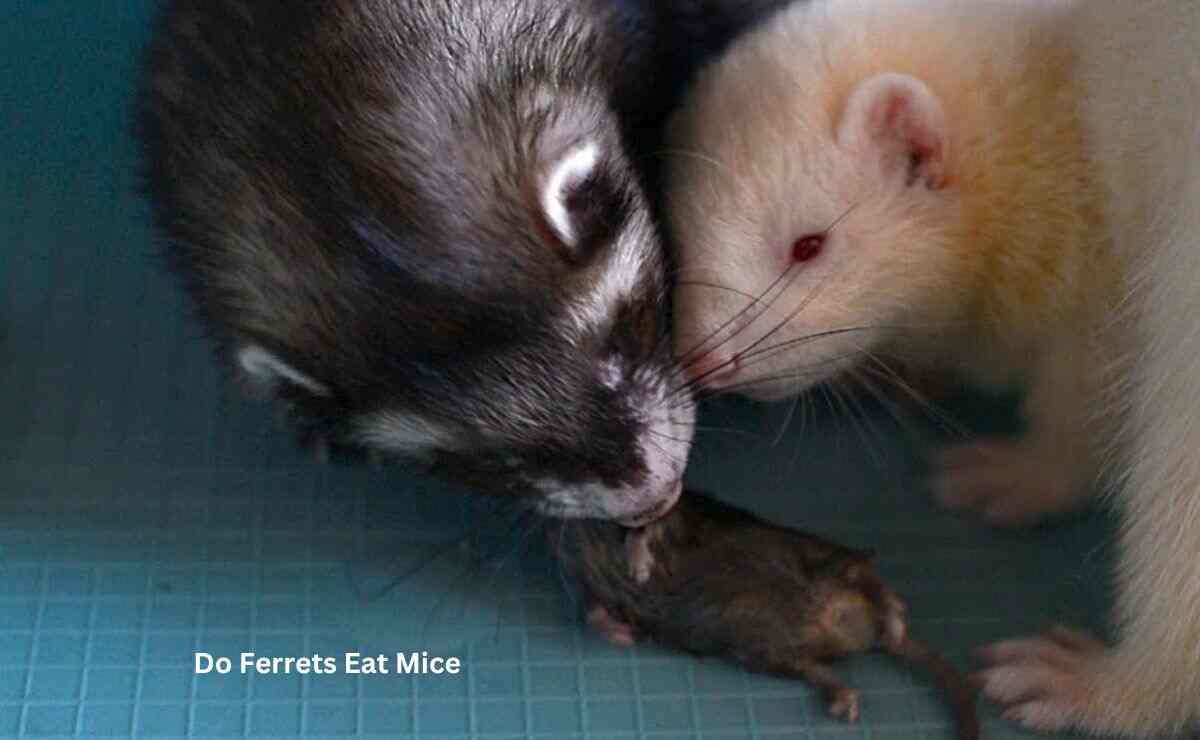Ferrets have become popular pets in recent years due to their playful and affectionate nature. As carnivorous animals, they require a diet rich in protein and fat to thrive. While many pet owners provide their ferrets with commercial ferret food or raw meat, some may wonder if it is safe or even natural for their furry friends to consume live prey such as mice.
So, do ferrets eat mice? The short answer is yes, ferrets are capable of hunting and consuming small rodents like mice. However, whether or not this should be a regular part of their diet requires further exploration.
Let’s delve into the topic and uncover everything you need to know about ferret nutrition and feeding habits when it comes to eating mice.
Do Ferrets Eat Mice?

Yes, ferrets can eat mice. In the wild, ferrets are natural predators and feed on small animals such as mice, voles, and birds. Domestic ferrets typically do not have access to these kinds of prey, but they may still hunt small animals like mice if given the opportunity.
It is important to note that feeding a ferret a mouse or other wild animal should only be done under the supervision of a veterinarian.
Overall, while it is possible for ferrets to eat mice, it’s best to consult with your veterinarian before doing so in order to ensure the safety of your pet.
Can A Pet Ferret Eat Mice?
Yes, pet ferrets can eat mice as part of their diet. Mice are a natural food source for ferrets and provide them with essential nutrients like protein and fat. Many pet owners choose to feed their ferrets mice as part of a balanced diet that also includes high-quality dry kibble or wet canned food.
If you plan to feed your pet ferret mice, it is important to make sure they are properly sourced. Wild-caught mice may contain parasites or diseases that could be harmful to your ferret, so it’s best to buy frozen, pre-killed mice from a reputable pet store or online retailer.
Additionally, make sure the size of the mouse is appropriate for your ferret; too large of a mouse can cause choking or digestive problems.
To ensure your pet ferret stays healthy, always consult with your veterinarian before introducing any new food into their diet.
Can A Ferret Eat Live Mouse?

Yes, ferrets can eat live mice. In the wild, ferrets are known to hunt and consume small animals such as mice, birds, insects etc. As a result, it is not uncommon for pet ferrets to have a strong instinct to chase and catch small prey.
In general, it is not recommended that pet owners provide their ferret with live prey due to the risk of injury or disease transmission. If you do choose to provide your ferret with live prey, make sure it has been sourced from a reputable breeder and is healthy. Also ensure that the mouse is an appropriate size for your ferret—it should be no bigger than two-thirds of the size of your ferret’s head.
If you are concerned about providing your pet with live prey, there are commercial diets available specifically formulated for ferrets that contain all of the necessary vitamins and minerals they need for good health and development.
Can A Ferret Eat A Whole Mouse?
Yes, ferrets can eat a whole mouse. In the wild, ferrets are known to hunt and consume small rodents such as mice. They have sharp teeth and strong jaws that enable them to easily bite through the skin of their prey and consume it in its entirety.
In captivity, some pet owners choose to feed their ferrets whole mice as part of their diet. This may include frozen or live mice, depending on what is available. Whole mice provide a nutritious meal for ferrets, as they contain proteins, fats, vitamins, and minerals that are essential for their health.
It is important to note that feeding your pet ferret a diet of only whole mice is not recommended. Ferrets require variety in their diet in order to stay healthy and maintain optimal nutrition levels. Therefore, it’s best to feed your ferret a balanced combination of wet food, dry kibble, and other treats such as fruits and vegetables in addition to occasional whole mice meals.
How to Feed A Ferret Mice?
Feeding a ferret mice is an important part of their diet, and should be done with care. It is best to feed them raw, frozen mice that have been thawed. This will help ensure that the mouse is safe for your ferret to consume. Before feeding the mouse to your ferret, make sure it has been thawed and warmed up so that it does not present a choking hazard.
When feeding a mouse to your ferret, you should always supervise them. Ferrets can bite off more than they can chew, which can lead to choking or other health issues. If you are not comfortable with handling a live mouse, you can purchase pre-killed mice from pet stores or online retailers. This way, you don’t have to worry about putting yourself or your pet in danger when feeding them mice.
It’s important to remember that mice should only be given as an occasional treat and should never replace regular meals in your ferret’s diet.
What Other Small Mammals Can A Ferret Eat?
Ferrets are omnivorous animals and, in the wild, they consume a variety of small mammals such as mice, voles, gerbils, and rats. They also eat birds and their eggs, frogs, lizards, insects, and other invertebrates.
Ferrets can be fed a diet of commercially available kibble supplemented with fresh meat such as chicken or turkey. Some owners also feed their ferrets live prey like mice or crickets. It is important to remember that live prey should never be given to young ferrets as they may not have the skills necessary to hunt them down.
Ferrets require a high-protein diet to stay healthy and active. While it is possible to provide your ferret with a variety of small mammals as part of their diet, it is important to ensure that all food sources are safe for your pet before feeding them.
Conclusion
Ferrets are natural predators that have a keen instinct to hunt and kill prey. Mice are one of their favorite foods and they can consume them whole, bones and all. Feeding your ferret a balanced diet that includes high-quality commercial food and occasional treats like live or frozen-thawed mice can provide them with the nutrients they need to thrive.
However, it’s important to note that feeding live prey poses potential risks such as injury to both the ferret and the mouse. Therefore, it’s recommended to only provide pre-killed or frozen-thawed mice as treats. Overall, it’s fascinating to witness these little carnivores in action as they hone their skills as hunters while providing us with endless entertainment and companionship.
